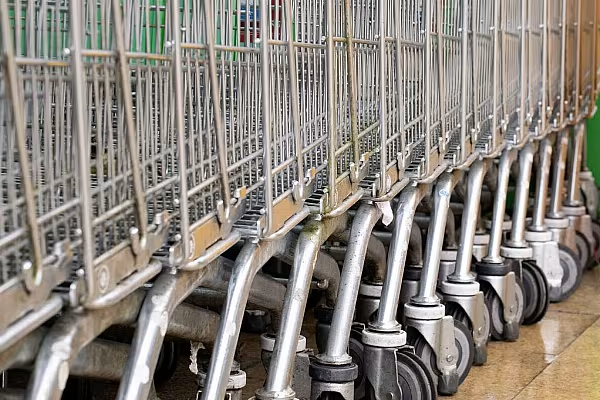Britain's antitrust regulator said it would launch a review of loyalty scheme pricing by supermarkets, such as Tesco's Clubcard and Sainsbury's Nectar, considering its impact on consumers and competition in the groceries sector.
Loyalty schemes have proved hugely successful for supermarkets, with retailers offering much lower pricing for members on a growing number of products.
'Higher Prices'
Reviewing the whole sector, the Competition and Markets Authority (CMA) also said on Wednesday that it had found some branded suppliers had pushed up prices by more than their costs increased, but in most cases, shoppers could find cheaper alternatives.
It did find one area of concern, however, with the CMA saying ineffective competition in the baby formula market could be leading to parents paying higher prices.
'Ineffective Competition'
The CMA had examined whether weak or ineffective competition among suppliers and producers, or in specific product categories, could be contributing to price inflation.
It ruled in July that Britain's high food price inflation had not been driven by weak competition among supermarkets.
It looked at ten product categories – baby formula, baked beans, bread, chilled desserts, lemonade, mayonnaise, milk, pet food, poultry and ready meals.
UK food price inflation reached its highest since 1977 in March at more than 19%, according to official data. By October it had slowed to 10.1%, but is still a major strain on the finances of many households.
Earlier this week, the British Retail Consortium (BRC) stated that annual shop price inflation has decreased to 4.3% in the 12 months leading up to November. This marks its lowest point since June 2022 and represents a slowdown from the 5.2% increase observed in October.
'Competitive Prices'
Commenting on the CMA's findings, Andrew Opie, director of food and sustainability at the British Retail Consortium, said, “We welcome today’s CMA report, which confirms many of the BRC’s own findings about the grocery sector. The CMA found that own-label goods offer competitive prices for consumers, with margins falling from 4% in 2020 to less than 2% in 2022.
"While many branded manufacturers had increased their unit profitability during the cost of living crisis, savvy consumers have been trading down to supermarket own-label brands in order to get the best possible value. The increased availability of own-label products is just one way in which food retailers have supported their customers with the rising cost of living.”
Additional reporting by ESM













